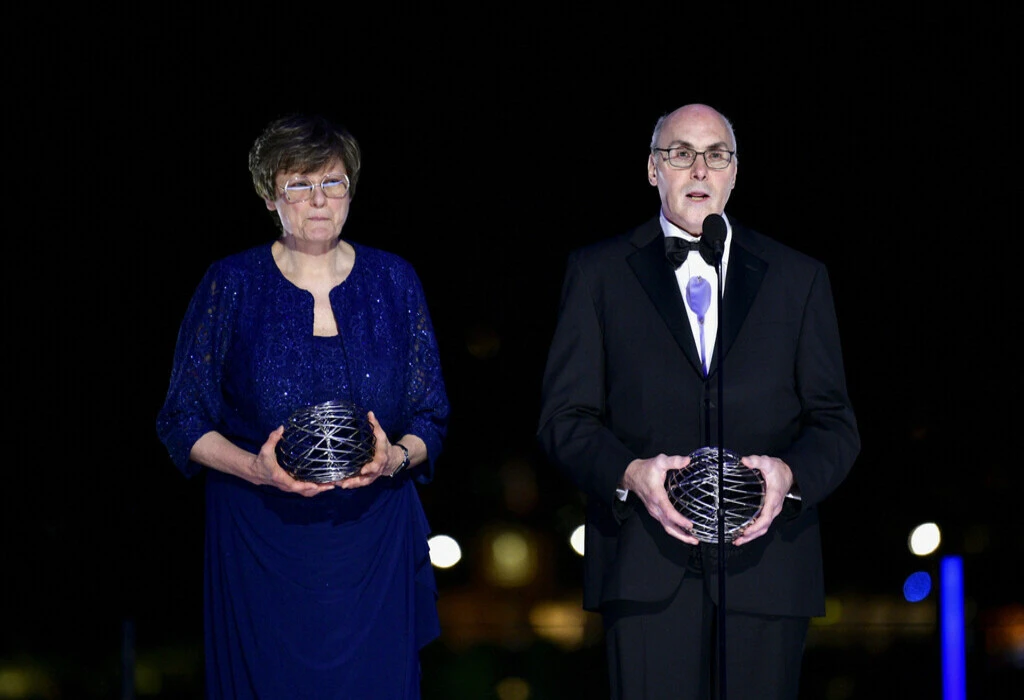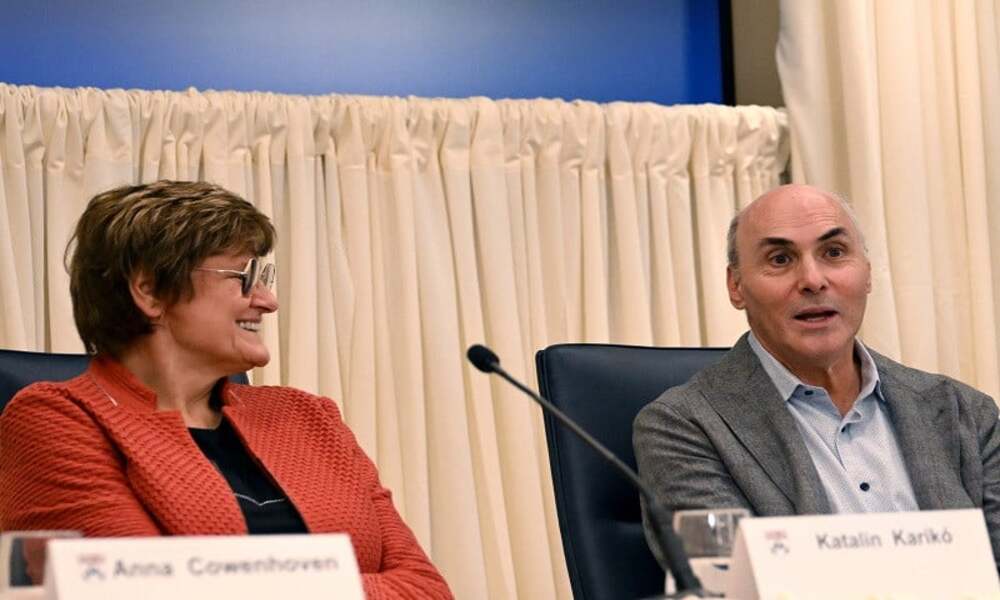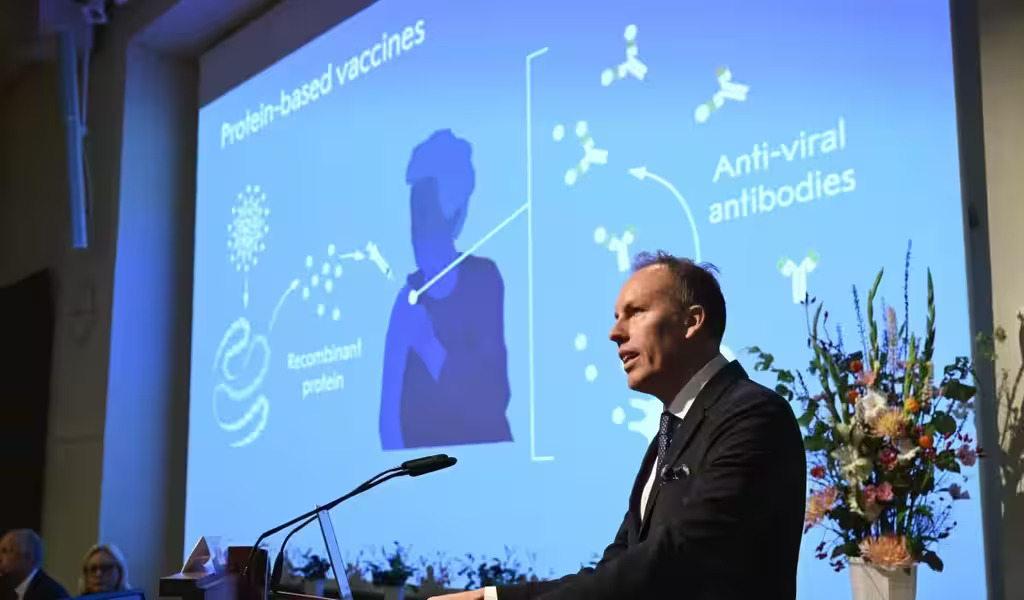News
Nobel Prize In Medicine Awarded To Pioneers Of mRNA Technology Behind COVID-19 Vaccines

(CTN NEWS) – In a historic moment, researchers Katalin Kariko and Drew Weissman were awarded the Nobel Medicine Prize for their groundbreaking work on messenger RNA (mRNA) technology.
Their contributions have not only revolutionized vaccine development but have also played a pivotal role in the fight against the COVID-19 pandemic.
The Nobel committee’s decision to honor recent research, rather than waiting for decades, highlights the unprecedented speed at which mRNA technology has transformed the medical landscape.
The Unprecedented Achievement
The COVID-19 pandemic, declared by the World Health Organization in March 2020, brought the world to a standstill. As nations grappled with the virus’s rapid spread, Kariko and Weissman’s groundbreaking research provided a glimmer of hope.
By December 2020, just months after the pandemic was declared, the first mRNA vaccines, developed by Pfizer/BioNTech and Moderna, received approval for emergency use.
These vaccines, alongside others, have since been administered to billions worldwide, saving countless lives and preventing severe disease.
The Journey to mRNA Vaccines
Traditional vaccines typically use weakened viruses or fragments of viral proteins to stimulate the immune system. In contrast, mRNA vaccines deliver genetic instructions to cells, instructing them to produce a specific viral protein.
This process mimics a viral infection, training the immune system to recognize and combat the real virus when encountered.
The concept of mRNA vaccines dates back to 1990, but it was not until the mid-2000s that Kariko and Weissman overcame a significant obstacle: a dangerous inflammatory response observed in animal studies.
Their innovative technique to control this response paved the way for safe mRNA vaccines in humans. In 2005, they published a seminal paper on their breakthrough.
A decade later, in 2015, the duo developed lipid nanoparticles to efficiently deliver mRNA into cells, preventing its degradation and ensuring it reached the correct cellular locations. These advances were crucial in the development of COVID-19 vaccines.
The Personal Triumph and Impact
Katalin Kariko’s journey to this historic Nobel Prize is a story of perseverance and determination. Despite facing skepticism and challenges in her early career, she remained steadfast in her belief in mRNA’s potential to treat diseases.
Her mother, who passed away five years ago, always held faith in her daughter’s work and had hoped to hear her name called out during Nobel Prize announcements.
Drew Weissman, reflecting on the award, expressed that winning the Nobel Prize was a lifelong dream since he became interested in science at a young age. He underscored the transformative impact of mRNA technology on the world.
The Nobel Effect on Vaccine Hesitancy
The Nobel committee’s decision to recognize Kariko and Weissman’s recent achievements may serve to bolster public confidence in mRNA vaccines, potentially swaying those who have been hesitant.
As Olle Kampe, a Nobel Committee member, noted, the prize may reassure the public about the efficiency and safety of these vaccines. This could prove invaluable in continuing to combat the COVID-19 pandemic and future health challenges.
Beyond COVID-19: The Future of mRNA Technology
The impact of mRNA technology extends far beyond COVID-19. Researchers are now leveraging this breakthrough for the development of treatments for various diseases, including cancer, influenza, and heart failure.
This versatile platform offers new possibilities in the realm of medicine, promising hope for patients facing diverse health challenges.
Conclusion
The Nobel Medicine Prize awarded to Katalin Kariko and Drew Weissman is a testament to the power of perseverance, innovation, and groundbreaking scientific research.
Their contributions to mRNA technology have not only accelerated vaccine development but have also reshaped the future of medicine.
As the world grapples with health challenges, their work serves as a beacon of hope, reminding us that science and innovation can triumph even in the face of the most formidable threats.
Kariko and Weissman’s achievement will be celebrated in Stockholm on December 10, 2023, marking a historic moment in the annals of medical science.
RELATED CTN NEWS:
New Zealand’s Record-High September Temperatures Signal Climate Change Challenge
Five People Injured In Shooting Incident At Morgan State University In Baltimore
Historic House Vote: Kevin McCarthy Ousted As Republican Speaker Amid Party Infighting































